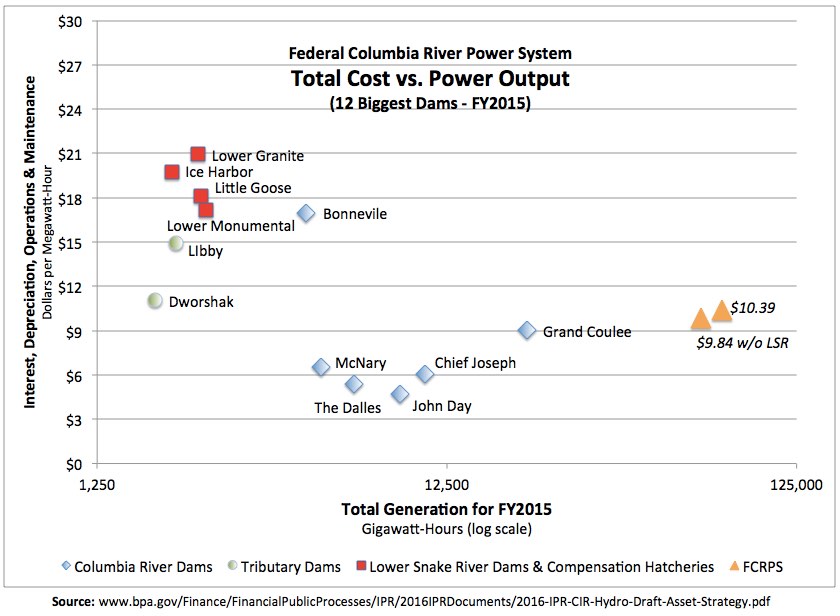forum
library
tutorial
contact

Investing in BPA's Future
May Mean Sharing Some Costs
by Debra Smith and Scott Simms
Seattle Times, September 23, 2019
|
the film forum library tutorial contact |

|
Investing in BPA's Future
by Debra Smith and Scott Simms
|
 An inaccurate account of the financial health of the Bonneville Power Administration is being played out in some Northwest news outlets -- and now on the national stage -- that must be addressed. What's at stake is far more than the agency's essential core duty of marketing clean, renewable and affordable electricity to Northwest citizens and businesses.
An inaccurate account of the financial health of the Bonneville Power Administration is being played out in some Northwest news outlets -- and now on the national stage -- that must be addressed. What's at stake is far more than the agency's essential core duty of marketing clean, renewable and affordable electricity to Northwest citizens and businesses.
While it's true that BPA is under incredible cost pressures, the nonprofit, community-owned Northwest utilities that make up the bulk of BPA's electricity revenues are working to help BPA reduce its costs and boost its revenue opportunities -- such as in energy markets that value carbon-free power over fossil-fueled sources. BPA's mission is multipurpose, and we in public power understand the crucial role the agency plays in our region, which is why it is important not to conflate our sustained push for BPA's competitiveness with an unproductive narrative attempting to question the agency's near-term financial solvency.
BPA has long been a productive and successful engine of the Northwest economy. In fact, so much so that some have suggested in the past that BPA's assets should be privatized in order to generate revenues for the U.S. Treasury – only to face fierce opposition from both sides of the aisle in the Northwest. But with that success has come a steady ladling onto the agency of additional obligations that were manageable a decade or two ago. With growing industry competitiveness, and with growing obligations that BPA must now meet, it's important to take a fresh look at whether some of these costs are appropriate for BPA to bear alone.
For example, there is an opportunity to look at the region's desire to restore salmon populations and to explore a more equitable allocation of certain BPA costs for these programs. Our power purchases from BPA provide the revenue stream that funds one of the world's largest environmental mitigation programs. Every year, hundreds of thousands of adult salmon complete their life cycle through rivers and the ocean thanks to BPA's river passage, habitat and hatchery programs. But as The Times and other news outlets have reported, the uphill climb for salmon restoration now includes far more than the impacts from dams -- there are more ocean and river predators, more pollution, more development resulting in less habitat, a continued desire for commercial and sport fishing of salmon, and many other impacts.
While we are actively working with BPA to address its very real long-term rate trajectory and competitiveness issues, we invite those who don't want to see BPA succeed to join us instead in making BPA stronger. In the years ahead, we would welcome the help of others in continuing to cut BPA's costs and to aide it in pursuing new revenue sources. The region's nonprofit public power utilities remain committed to holding the agency accountable for its costs and spending decisions. Yet we also see great opportunities for BPA, and we see these efforts as an investment in something bigger -- an investment in the Northwest, its environment and its natural resources, as the place where we live and work.
learn more on topics covered in the film
see the video
read the script
learn the songs
discussion forum
